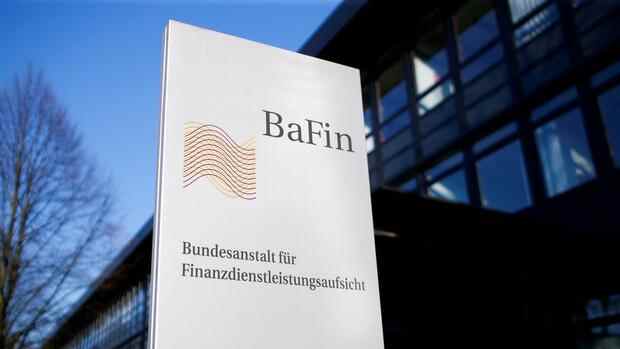Frankfurt The financial supervisory authority Bafin is scrutinizing several large payment service providers after the Wirecard scandal. In addition to a special audit at Unzer, the authorities have also started intensive investigations at Payone and Concardis, several people familiar with the subject told the Handelsblatt.
Among other things, the Bafin is checking whether the precautions against money laundering and other illegal transactions are sufficient – and in some cases it has already discovered deficiencies. The investigations are very intensive and are still ongoing.
According to financial circles, the Bafin also analyzes whether the companies achieve margins in some business areas that deviate from the usual. This is a direct lesson from the Wirecard case, where exactly this was the case and the Bafin was not noticed.
In addition, according to insiders, the Bafin asks the company critical questions about business and connections with the German businessman Ruben Weigand, who was convicted of gang fraud in the US in the summer. Weigand and an accomplice had helped disguise card payments for purchases of marijuana products in the United States from the judiciary’s point of view. Contacts with Weigand were already one of the triggers for the Bafin special examination at Unzer.
Top jobs of the day
Find the best jobs now and
be notified by email.
Bafin did not understand Wirecard enough
The Bafin did not want to comment on the issue. Concardis and Payone did not comment specifically on the investigations, but only fundamentally on their exchange with the financial supervisory authority. As a provider of regulated digital payment services, Concardis is “naturally in close and continuous exchange with Bafin in order to deal with compliance and money laundering issues that represent a constant challenge for the industry,” explained a company spokesman.
A Payone spokeswoman said tackling money laundering and tax avoidance offenses was a major public concern. “Payment service providers are repeatedly questioned and listened to by the regulators.” in combating money laundering and identifying customers.
The payment service provider Unzer, which was formerly called Heidelpay, declared at the beginning of July, when the special audit by the financial supervisory authority became known: “We are in a constructive dialogue with the Bafin.” The schedule of the exam.
The payment service provider industry is currently experiencing a boom. As more and more people pay with cards or smartphones at the checkout and shop online, payment companies are processing more and more payments. The service providers not only take care of the technical processing of payments from consumer to dealer. They often also offer card readers at the checkout, integrate various payment methods in online shops and, as a retailer bank, guarantee payments, in the technical jargon “acquirer”.
Wirecard also pretended to benefit from these trends. In fact, the growth figures that the bankrupt company announced were based in part on fabricated deals. From the point of view of Wirecard insolvency administrator Michael Jaffé, it is clear that the third-party business with amounts in the billions did not even exist at Wirecard.
At Bafin, President Felix Hufeld and his deputy Elisabeth Roegele resigned prematurely after the Wirecard scandal was exposed. In addition, the authority has been rebuilt and, among other things, has been given more powers to control complex financial groups. The new Bafin boss Mark Branson has announced that the financial supervisory authority will take tougher and faster action in the event of grievances.
Competitive market with start-ups as competition
Concardis and Payone are among the major providers on the German market. Both are now part of international corporations. Concardis belongs to the Danish payment service provider Nets, which in turn is merging with the Italian provider Nexi.
The company, headquartered in Eschborn near Frankfurt, has long been in the hands of German credit institutions. At the beginning of 2017, the Sparkassen-Finanzgruppe, the private banks and the cooperative DZ Bank sold Concardis to the financial investors Advent and Bain. These sold the payment service provider a year later in part to Nets, which was owned by Hellman & Friedman.
The German savings banks still hold 40 percent in Payone from Frankfurt. 60 percent belong to the French payment group Worldline.
The market for payment service providers is not only booming, it is also highly competitive. Competitors, especially in online payment, are relatively young companies such as Adyen from the Netherlands, which is also well represented in Germany. The US company Stripe, the most valuable unlisted start-up in the western world, also has some larger German customers. Checkout.com from Great Britain is also trying to attract more German retailers. These companies consider themselves more technology providers than financial services providers.
Computop from Bamberg, which has allied itself with the DZ Bank subsidiary VR Payment, is also one of the German competitors. In addition, Deutsche Bank has rediscovered this payment business.
The special test at Unzer caused a sensation in the industry. In June Unzer, the majority owned by the US financial investor KKR, surprisingly announced that company boss Axel Rebien is withdrawing. Rebien, long co-boss, had only become sole CEO four months earlier.
Since then, Unzer boss has been Robert Bueninck, who previously was Klarna’s boss in Germany for several years. Klarna, the most valuable European start-up, is also a payment service provider, but its shopping app is aimed more at consumers.
More: Interview with Bafin boss Branson: “We also have to test the limits”
